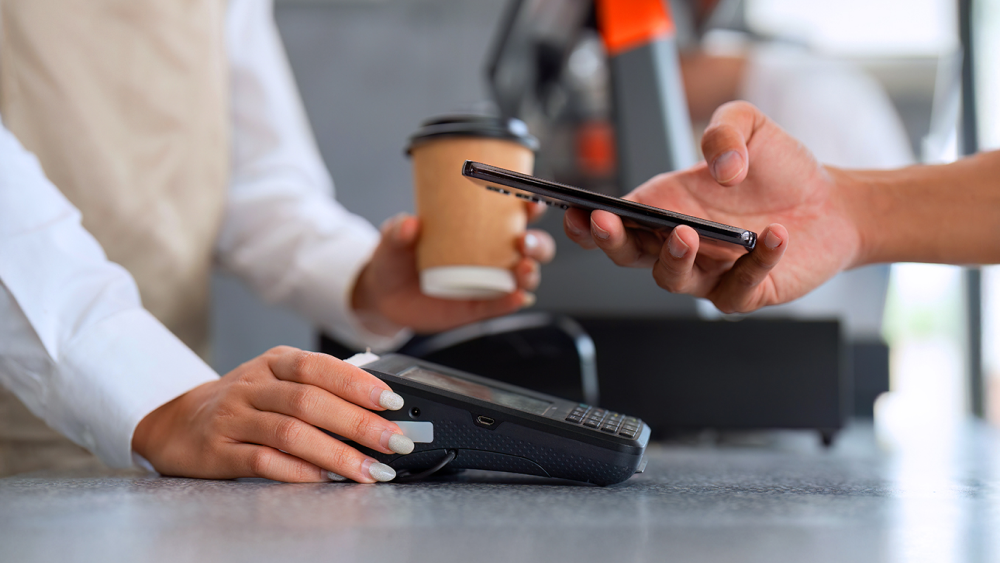Tapping your phone at the cash register makes for a smooth trip to the store. Far smoother than fumbling for your card at the checkout or dealing with a bunch of change. That’s the beauty of the digital wallet on your phone. And with that convenience comes something plenty important — keeping that digital wallet secure.
All the personal info, photos, and banking apps we already have on our phones already make them plenty valuable. A digital wallet makes them that much more valuable.
A few steps can keep your phone and digital wallet more secure. Further, other steps can protect your cards and identity if that phone gets lost or stolen.
Let’s start with a look at how digital wallets work.
What is a digital wallet?
For starters, digital wallets work much like a physical wallet. Through service apps like Apple Pay, Google Pay, Samsung Pay, PayPal, and others, you can store various payment types. That includes debit cards, credit cards, gift cards, and bank accounts.
The transaction is highly secure in general. When you use your digital wallet to make a purchase, the app creates a random ID for the transaction. It uses that ID rather than your actual account number to keep things secure. Encryption technology keeps things safer still by scrambling info during the process.
A digital wallet is safe, as long as you guard your smartphone just as closely as you would your physical wallet.
Here’s why you should secure your digital wallet and three tips to help you do so.
Tips to protect your digital wallet
- Use a lock screen on your phone.
Fewer people use a lock screen than you might think. A finding from our global research showed that only 56% of adults said that they protect their smartphone with a password or passcode.[i] The problem with going unlocked is that if the phone gets lost or stolen, you’ve handed over a large part of your digital life to a thief. Setting up a lock screen is easy. It’s a simple feature found on iOS and Android devices.
- Set a unique passcode for your wallet.
Always protect your digital wallet with a lock, whether a unique passcode, fingerprint scan, or facial ID. This is the best and easiest way to deter cybercriminals. If you use a numerical code, make it different from the passcode on your phone. Also, make sure the numbers are random. Birthdays, anniversaries, house addresses, and the last digits of your phone number are all popular combinations and are crackable codes to a resourceful criminal.
- Update your apps and operating system regularly.
Another way to secure your digital wallet is to make sure you always download the latest software updates. Developers are constantly finding and patching security holes, so the most up-to-date software is often the most secure. Turn on automatic updates to ensure you never miss a new release.
- Download digital wallet apps directly from official websites
Before you swap your plastic cards for digital payment methods, ensure you research the digital banking app before downloading. Also, ensure that any app you download is through the official Apple or Android store or the financial institution’s official website. Then, check out how many downloads and reviews the app has. That’s one way you can make sure you’re downloading an official app and not an imposter. While most of the apps on official stores are legitimate, it’s always smart to check for typos, blurry logos, and unprofessional app descriptions.
- Learn how to remotely lock or erase a smartphone.
So what happens if your phone ends up getting lost or stolen? A combination of device tracking, device locking, and remote erasing can help protect your phone and the data on it. Different device manufacturers have different ways of going about it, but the result is the same — you can prevent others from using your phone. You can even erase it if you’re truly worried that it’s in the wrong hands or if it’s gone for good. Apple provides iOS users with a step-by-step guide, and Google offers up a guide for Android users as well.
Protection for your phone all around
No doubt about it. Our phones get more and more valuable as the years go by. With an increasing amount of our financial lives coursing through them, protecting our phones becomes that much more important.
Comprehensive online protection like our McAfee+ plans can protect your phone. And it can protect something else. You. Namely, your privacy and your identity. Here’s a quick rundown: It can …
- Block sketchy links in texts, emails, and messages.
- Block yet more sketchy links in search, while surfing, and on social media.
- Protect your identity in the ways mentioned above by keeping tabs on your credit and accounts.
- Protect your privacy by removing your personal info from shady data broker sites.
- Make you more private still by locking down your privacy settings on social media.
- Help you restore your credit and identity with $2 million in identity theft coverage.
- Also help you cancel and replace lost or stolen cards, like IDs, credit cards, and debit cards.
Protection like this is worth looking into, particularly as our phones become yet more valuable still thanks to digital wallets and payment apps like them.
[i] https://www.mcafee.com/content/dam/consumer/en-us/docs/reports/rp-connected-family-study-2022-global.pdf













